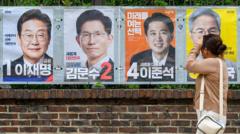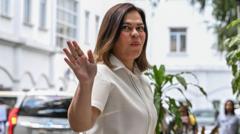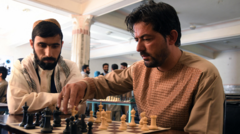As South Korea gears up for elections on June 3, young women who were pivotal in the protests against former President Yoon Suk Yeol express frustration over a lack of focus on gender issues by candidates seeking to replace him.
South Korean Women's Voices Left Out as Election Approaches

South Korean Women's Voices Left Out as Election Approaches
Despite playing a crucial role in protests against former President Yoon Suk Yeol, women feel overlooked in the upcoming elections as candidates sidestep issues of gender equality.
As South Korea prepares for its upcoming elections on June 3, the voices of young women are seemingly being drowned out by the political narrative. Throughout the protests against former President Yoon Suk Yeol, these women emerged as strong activists, uniting against policies they argued marginalized them. Their activism during Yoon's controversial imposition of martial law in December demonstrated a revolt against the pervasive discrimination they face. This discrimination manifests in wage gaps, inadequate representation in leadership roles, and alarming levels of online harassment.
However, as the political landscape shifts, many women feel their concerns are being sidelined. The focus seems to be shifting towards securing votes from young men, who perceive themselves as the victims of 'reverse discrimination' amid Korea's fragile economic climate. In light of this sentiment, many candidates are reluctant to address feminist issues, fearing backlash from male voters.
Lee Jae-myung, who narrowly lost to Yoon in the previous election but currently leads the polls, recognizes the significant participation of women in ousting Yoon. Nevertheless, he and his leftist Democratic Party are also cautious, trying to balance the priorities of male voters while acknowledging women’s contributions.
As elections draw near, women in South Korea are left questioning whether their voices will once again be muted in favor of political expediency, pondering if gender equity will ever earn a prominent place in political discourse.




















